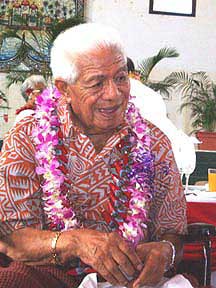I knew that older dogs can get a type of dementia, but wasn’t aware that cats may, also (never had a cat before to age with). A couple of points the researchers raise–
longer life increases the chances of age-related changes (in anything) and
good diet, mental stimulation, and companionship improve quality of life

while obvious are well worth remembering (for feline and hominid; oh, and the dog, too.
see also
This is a press release, so I am reprinting it in its entirety.
Study shows cats can succumb to feline Alzheimer’s disease
Ageing cats can develop a feline form of Alzheimer’s disease, a new study reveals. Scientists at the Universities of Edinburgh, St Andrews, Bristol and California have identified a key protein which can build up in the nerve cells of a cat’s brain and cause mental deterioration.
In humans with Alzheimer’s disease, this protein creates ‘tangles’ inside the nerve cells which inhibit messages being processed by the brain. The team says that the presence of this protein in cats is proof that they too can develop this type of disease.
By carrying out post-mortem examination of cats which have succumbed naturally to the disease, scientists may now be able to uncover vital clues about how the condition develops. This may eventually help scientists to come up with possible treatments.
Scientists already thought cats were susceptible to dementia because previous research had identified thick, gritty plaques on the outside of elderly cats’ brain cells which are similar to those found in humans. But, by pinpointing this second key marker, the Edinburgh-led team says we can be sure that cats can suffer from a feline form of Alzheimer’s.
Dr Danielle Gunn-Moore, at the University of Edinburgh’s Royal (Dick) School of Veterinary Studies, said: “This newly discovered protein is crucial to our understanding of the ageing process in cats. We’ve known for a long time that cats develop dementia, but this study tells us that the cat’s neural system is being compromised in a similar fashion to that we see in human Alzheimer’s sufferers. The gritty plaques had only hinted that might be the case – now we know.
“The shorter life-span of a cat, compared to humans, allows researchers to more rapidly assess the effects of diet, high blood pressure, and prescribed drugs on the course of the disease. However, we also need to understand more about our geriatric cats for their own benefit, so we can slow down the degeneration the disease brings and keep them as happy cats for as long as possible.”
“As with humans, the life expectancy of cats is increasing and with this longer life runs the greater chance of developing dementia. Recent studies suggest that 28% of pet cats aged 11-14 years develop at least one old-age related behaviour problem and this increases to more than 50% for cats over the age of 15.”
Experts suggest that good diet, mental stimulation and companionship can reduce the risk of dementia in both humans and cats. Dr Gunn Moore explained: “If humans and their cats live in a poor environment with little company and stimulation, they are both at higher risk of dementia. However, if the owner plays with the cat, it is good for both human and cat. A good diet enriched with antioxidants is also helpful in warding off dementia, so a cat owner sharing healthy meals like chicken and fish with their pet will benefit them both.”
Dr Frank Gunn-Moore, at the School of Biology, University of St Andrews, said: “This work relied on a team effort with the different skills and expertise from our different institutions. It has given us an insight into the molecular changes that are occurring in the degenerating brain. From this knowledge we are now currently trying to develop new and novel treatments which will be able to help both cats and humans”.
###
The findings of the study are published in a recent edition of the Journal of Feline Medicine.
Public release date: 5-Dec-2006
Contact: Linda Menzies, Linda.Menzies AT ed.ac.uk
44-131-650-6382
University of Edinburgh
Site Search Tags: friends, cats, dementia, research









Updates, comments